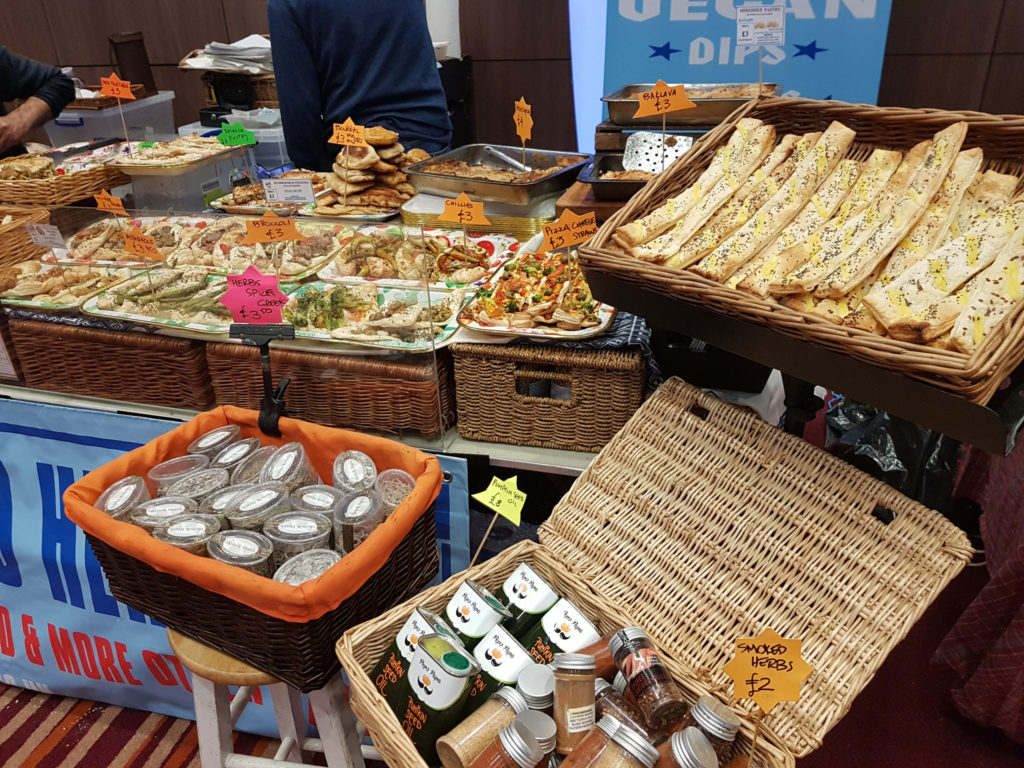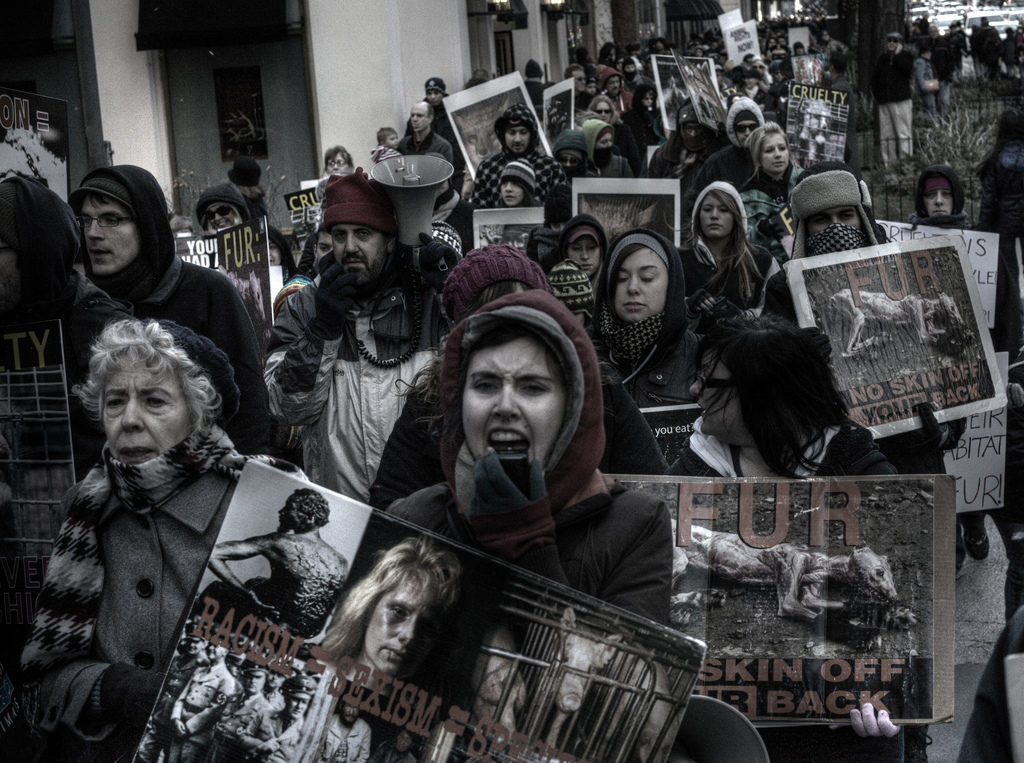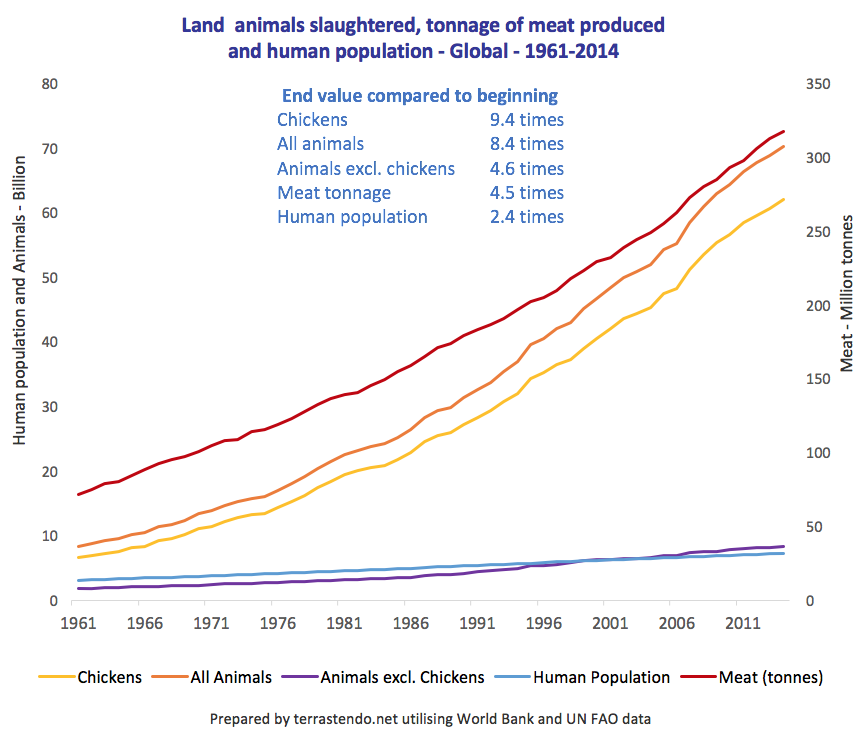I know many people will dislike this post, in the same way I didn’t like hearing the truth from vegetarians and vegans while I was still eating animals. The difference between those who will take some time to think about what they will read and those who will ignore it, lies in the motive that pushes each person towards activism. I also know that many people will deny what I’m about to write because it is not convenient for them to believe it. I really wish what I’m about to present was untrue, but it is not, and we must do something about it.
Until last May, I believed that the vegan movement was going very well. Extremely well, I would say. I had worked on translating this huge article into Greek, and it had reinforced that perception. The article is full of numbers and news from all around the world, demonstrating the increasing number of vegans worldwide: vegan celebrities, vegan businesses, vegan products, and so on.
I realized how wrong I had been after I had an eye-opening meeting with a French activist who informed me about the ugly truth. After that meeting, I felt that I had been fooling myself all along. The reality is exactly the opposite of what I believed. Yes, the number of vegans is growing, but at the same time, strangely enough, the number of animals that die for food every year is also growing.
For years, I had been missing the point.
Why do we care if the number of vegans increases? Ultimately, it’s because we believe that less demand means less production. We think that if more and more people become vegans, that one day animal exploitation will stop.
But we forget the reason we became vegans in the first place when we celebrate our progress without researching whether the number of slaughtered animals is actually decreasing. Instead we have become obsessed with proselytism and consumerism. Most activists dedicate themselves to outreach and they focus primarily on what people consume. What and where to eat, which cosmetics they use, what to wear, what to buy. Articles are published under titles such as “X million animals were saved last year thanks to veganism,” and we rush to celebrate.
This point illustrates a major difference between veganism and antispeciesism, and it points out a fatal flaw in veganism as a primary identity and main cause for animal activists. Veganism focuses on personal choices and individualism, and on what we consume. Antispeciesism, on the other hand, focuses on animal rights and stands against speciesism, an ideology which states that the lives and interests of non-human animals can be ignored, just because they are members of a different species. Antispeciesism is a social movement, and it focuses on the root cause of all forms of animal exploitation. Veganism is a lifestyle or pattern of consumption, and it focuses on some of the symptoms of speciesism.
The graph above was created in 2018 and shows the drastic global increase of slaughtered animals from 1961 to 2016. The data comes from the Food and Agriculture Organization of the United Nations and the World Bank, two of the highest authorities on this topic that can be found. Sadly.
But why? How can we explain these numbers?
With 250 babies born every minute worldwide, and 360,000 born every day, we have part of the answer. As human populations grow, the demand for meat is increasing every year. The countries with increasing numbers of vegans are mostly countries where the birth rate is decreasing, so most of those 360,000 babies are born in countries where there is little awareness of veganism.
Some more concerning numbers: In Israel (a country with a large percentage of its population identifying as vegan) more animals than ever are being abused in laboratories. In Australia, another country with a steady increase in the number of vegans during the last few years, we still notice this absurd increase in the number of slaughtered animals, other than chickens, who are being killed in decreasing numbers.
Similarly, while in Canada there has been a big decrease in pork demand, there has been an increase in pig breeding. Those pigs do not end in the stomachs of the people who live in Canada, so where do they go? To Asia, of course! In what is commonly known as live export, millions of animals travel alive, in terrible conditions, from Brazil, Australia and Canada to various countries in Asia. These destination countries did not historically consume meat at such high rates, but global capitalism ensured that their diets evolved to more closely fit a Western standard and generate profits for meat producers.
Another interesting piece of research is this study from The Sentience Institute, which looked at the attitudes of people in the United States. 75% of people polled reported buying meat from so-called humane farms, while less than 1% of the animals slaughtered in the United States come from such farms. Therefore, there is no way that 75% were correctly reporting where they source their meat, and denial is a big part of this discrepancy. People sugarcoat reality so they don’t have to abandon their comfort zone and face the reality of their actions.
What can we expect in the future, in terms of global meat consumption and the animals killed for that meat? I won’t write the depressing numbers here, but predictions certainly don’t look good.
In my opinion, the best arguments on this matter have been presented by Tiphaine Lagarde, at an animal rights conference that took place this year in Paris. For that reason, I translated her speech from French to English, in order to share with others. You can read it in its entirety in both French and English here.
In her speech, Lagarde said, “The obsession with consumerism and individualism … emphasizes veganism rather than antispeciesism, and cares about the content of the vegan plate rather than the fate of the oppressed … the word “vegan” has become a label, a brand, a fashion, a community, a trendy hashtag, a social identity, a brand of nobility for stars, a nice ideological coating to an unchanged society.”
I will not stop encouraging people to go vegan, of course. But what I see is that we have lost the true meaning of it, and consumerism has taken over the movement, resulting in the uploading of recipes, dishes and other products, instead of talking about the animal holocaust.

Food for sale at the Vegan Summer Festival in London. Of course, delicious vegan food is an exciting thing for any vegan. But have we lost our way when buying these foods is where our commitment to animal activism ends? Photo credit Jason Peper, CC BY-SA 3.0.
The most famous activists in the vegan movement have lost their humility, they aim for self-promotion and popularity, they think so highly of themselves that they live only for the likes they get on social media, and of course they have turned activism into a profession, while most of them keep their income private while people continue to donate. They fly in airplanes frequently without considering their carbon footprint, visiting countries where they deliver speeches, thinking that this is the way to inspire others. The average vegan activist refers to them as if they were messiahs.
Personally, I have affected many people from afar. Because of the power of the internet, I don’t have to go anywhere to achieve my goals. If I do, it will only be to satisfy my selfish need for a trip and recognition abroad, but I don’t need those things.
What I understand is that the world does not change through continuation of the consumer model. We should fight consumerism. It is part of the “enemy,” part of a system that turns everything into profit, reduces living animals to meat, ecosystems to “natural resources,” and people to their ability to earn money. If we want to stop animal exploitation, we ought to move on from the recipes and the instagrammable colorful vegan dishes and get out in the streets.

Activists at a Fur Free Chicago protest in the United States. Image credit Jovan J, CC BY-SA 3.0.
To protest.
To shout.
To push back against the system.
To liberate animals.
To go to slaughterhouses and block the death corridors. Antispeciesist activists in France and Belgium have been engaging in such direct actions, and they are having an effect, even if just to stop the killing during their presence and disrupt the slaughterhouse. This is political activism.
Anything less is just the promotion of a personal way of life, which can inspire, but it can’t effectively change entire systems, and it can’t save lives.
If you’re interested in how we can change our movement to be more effective, please take a moment to read this article from The Sentience Institute, which provides a more in-depth exploration of the issues discussed here, and recommendations for a way forward.
This article was first published on Ethos & Empathy.
Featured image: a vegan tattoo. Without a larger commitment to antispeciesism, what purpose does the vegan label serve, and how much change can it ultimately create? Image credit Mrbille1, CC BY-SA 3.0.







3 Comments
Being a terrorist and inhibiting “consumerism” as you put it will not help your message to truly help save the world. Actions like that only seek to create distrust in what you stand for. I’m all for education and encouragement, but if you want real change, you must change the hearts and minds of people. Blocking them access to what the want only makes them resent you.
I agree, you can either criticize people for being selfish and for focussing on personal choices or you can show them the health benefits of going vegan. In the end, the selfish approach is what will work better. Helping people realize the (selfish) health benefits of going vegan will help your antispeciesism mission.
I question your grasp of nutritional science, which does not include epidemiological studies, which clearly shows that humans, animals, and grasslands evolved together and formed an ecological food web that is sustainable. More sustainable in fact than plowing the land to grow plants to feed humans – most of whom now have to rely upon chemically fortified cereals for survival – aka carbohydrates which lead to the costly chronic conditions currently rampaging around the world slowly killing people.
Ethically, there is no real difference between a tiger killed deer and a human killed deer. Humans are not and never were herbivores. That was Paranthropus who is now extinct. Humans have been eating animals for 4.35 million years as proven by stable isotope testing of ancient human skeletal remains, and if we are to accept nature’s wisdom as to what is sustainable and ecologically sound, veganism becomes merely an emotional rejection of humans being heterotropes.